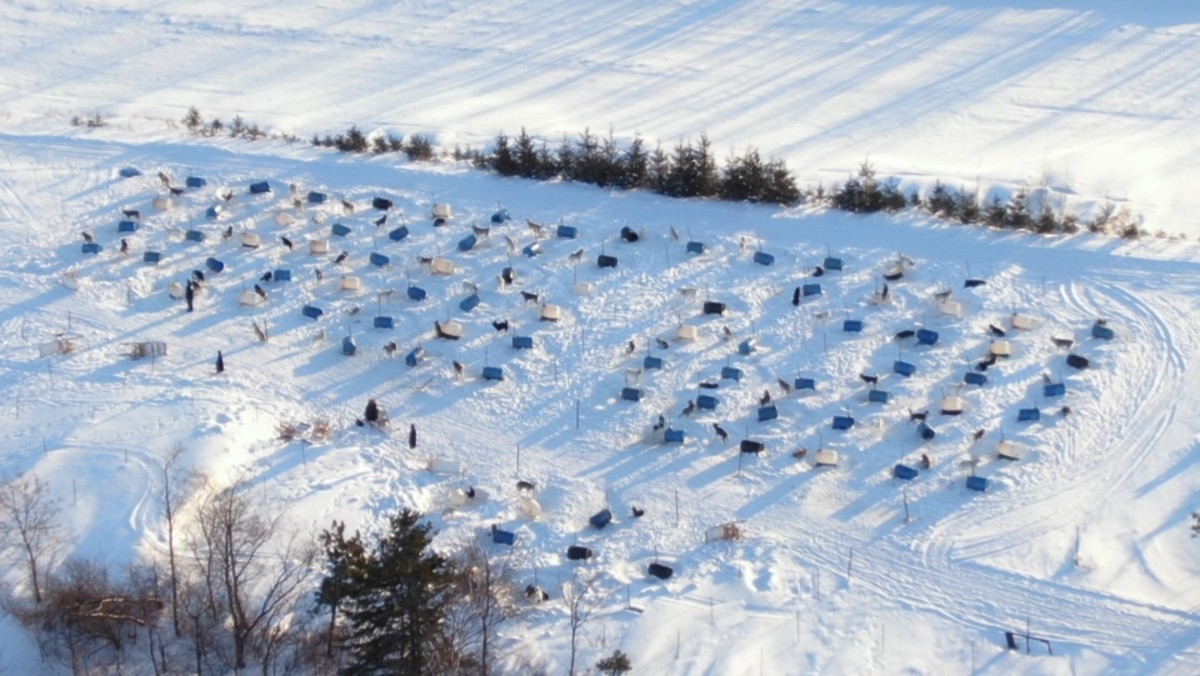Paper Made From Animal Poop
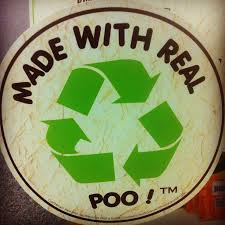
It may sound preposterous but you read the title right, various types of animal dung are really being turned into paper. What is more shocking is the fact that the people who are doing business selling "poo paper" do make huge profits out of it.
It may be the gross factor that is pulling consumers into buying the paper or the fact that it is an Eco friendly way of using paper without having the guilt of murdering centuries-old trees hanging over their heads.
The graph below from Gizmodo shows how many 40-footer trees were used per person in the countries listed below. As the world's population bubbled, so did the paper usage. It continues to, even when the world's trend is going paperless.
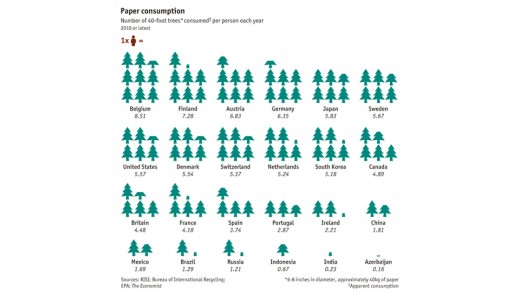
The question remains: do we wait until all the trees in our forests have been exploited and exhausted before we make steps to conserve them?
People have recently recognized the need for the conservation of trees and massive tree planting to replace the forests which have been completely wiped out because of our greed. We now understand the roles these trees play in our survival here on earth.
There has been many steps taken to help reduce the use of trees. Others have made steps to separate the paper sludge from our sewage and treating them again into usable paper. This step alone has helped reduce the wastes dumped by 70%. And while others have tried to collect old newspapers and office paper wastes to recycle them, some took the other end of the spectrum and collected animal wastes.
Why Animal Poop?
First of all, not all animal wastes can be used to make paper. Human dung, for instance, is not a viable option since we simply do not eat enough plants and our diet consists of other food. Poop from other animals which are not inherently herbivores, are not a good source of pulp.
Wood is mainly made up of cellulose, which is mechanically reduced to pulp. This mechanical action does not damage the fiber and enables it to keep its structure. After immersing the pulp in water and draining, it is then dried and forms the paper.
Herbivores' diet is mainly made up of plant. The animal's digestive system helps break down the cellulose and makes it easier to turn into paper.
Here are some of the animals whose poop have been turned into paper:
ELEPHANT
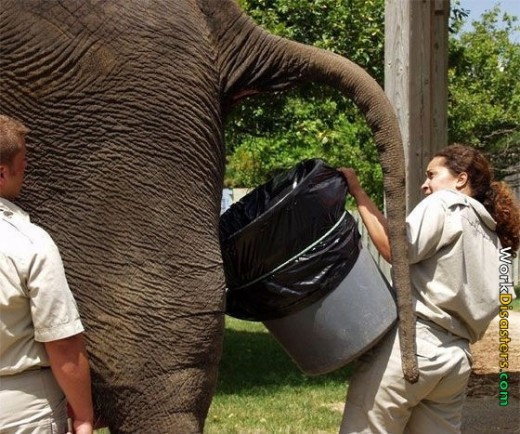
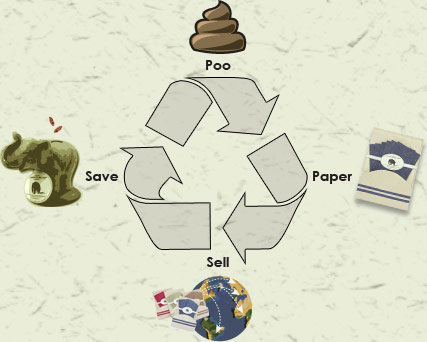
Elephants are able to excrete out approximately half of what they eat. This equates to around 200 kg to 250 kg of wastes per day, which is mainly made up cellulose from their vegetarian diet. They are essentially doing the first step of the paper making process, the getting of the fiber.
Instead of using the wood chips of cut trees, these pachyderms are a fantastic alternative source of the paper raw material. Since the paper made will be from waste, it is even more environmentally-conscious to use it.
Elephant dung papers are now being made largely from animal reserves, mostly in Thailand and Sri Lanka. These countries have always looked at these elephants as a source of income for their tusks. But now, locals have started to be in the forefront of conserving them so as to be able to sell more paper from the collected dung. It creates livelihood and conserves the elephants at the same time.
BISON

After getting inspired by the work in Thailand in converting elephant dung into paper, two Americans decided to try the same process for bisons. These Idaho guys dried out the bison excrement and called them bison chips. These chips are then used as material for paper making.
You can find their website, Dung and Dunger, here.
Since the paper product is not just made up of bison poop but also of paper wastes we all use daily, it does lessen the negative impact on our environment.
As with all other paper made from dung, bison paper does not stink. This is because of the different processes that sterilize the excrement, removing some of the bacteria that produce the smell. So thankfully, they are all stink-free!
SHEEP
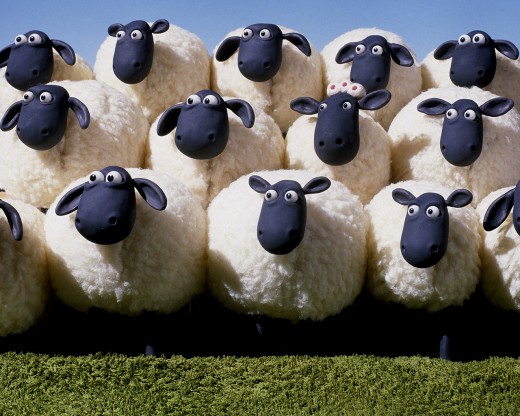
In a town in Wales, a group of like-minded people decided to create paper out of sheep poop and named their company, Sheep Poo Paper. They collect the sheep excrement from sheep farms in rural Wales and bring them back to their mill to be turned into paper. Since sheep poo alone is very fragile when turned into paper, they also incorporate waste paper and other wastes which have enough cellulose in them.
KANGAROO

When we think of Australia, we usually think of the hopping Kangaroos. According to the Roo Poo, a company in Tasmania that sells kangaroo poop paper, 25 kg of their manure can create around 400 sheets of paper.
However, they are currently facing problems in meeting the quantity of poop they need. So what they are doing, they are urging the Tasmanian locals to collect as much as they could and drop it to them to be made into paper.
PANDA

We know for a fact that pandas eat a lot. Thus, they also poop a lot as well. Instead of just leaving these droppings on the soil where they decompose and fatten the grass and bamboo, they are now being turned into paper. The panda poo paper craze started in Thailand in 2005 and China followed their example and are now the two largest sources of panda poo paper.
Other animal poop that has been turned into paper are ones from cows, elks, reindeers, horses, moose and donkeys. These are all herbivores and will mostly eat plants.
This Pootique sells different types of paper made from various types of poop.
Poo is making a new wave today. If you happen to have a herd of cattle or a collection of plant-eating animals, you might want to consider venturing into this business.
Once this is popularized and most people start using it, perhaps one day, we will all say, "this paper is crap!" True that!


